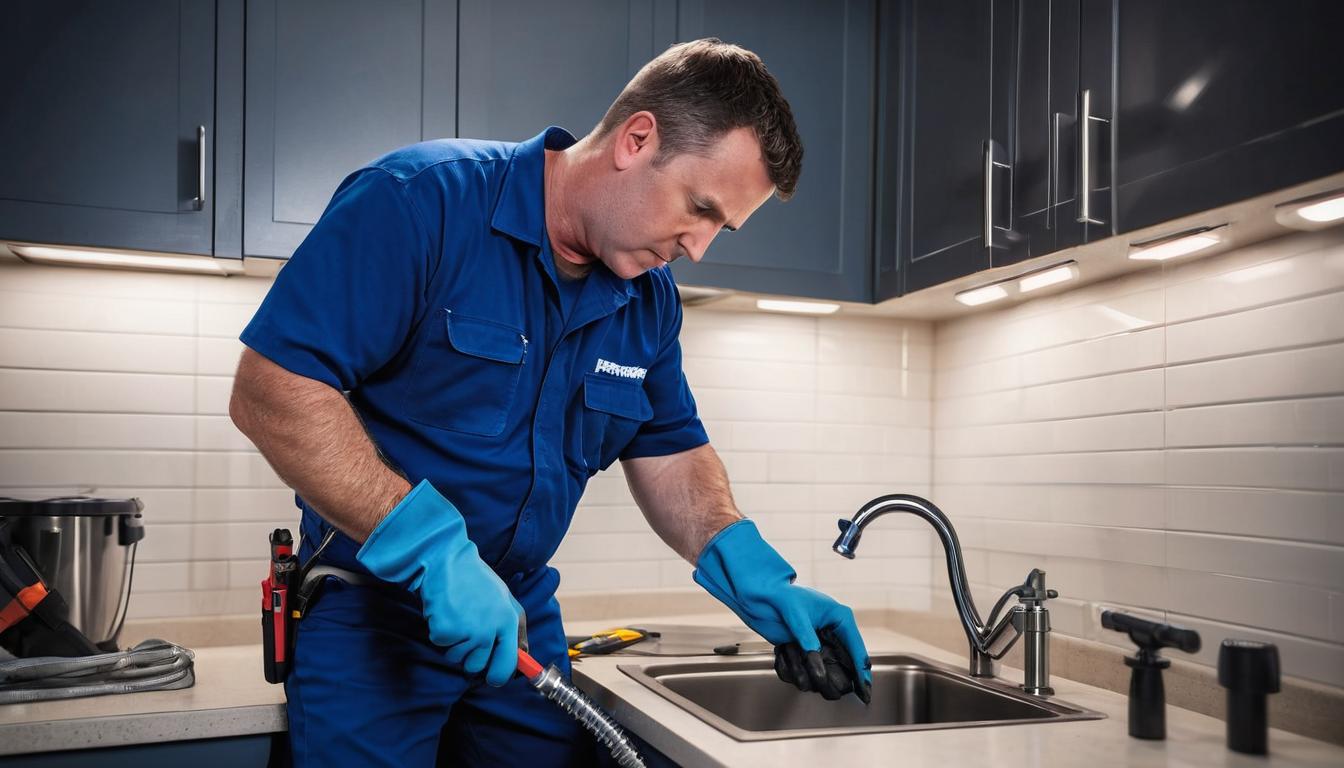Our Blog
Discover the world of plumbing through our plumbing technicians.

The Impact of Hard Water on Your Drains.
Hard water is a common issue in many Calgary homes, and it can lead to mineral buildup in your drains over time.
This buildup, primarily composed of calcium and magnesium, can cause significant damage to your pipes, appliances, and water fixtures. In this guide, we’ll discuss the impact of hard water on your plumbing, how to identify mineral buildup, and most importantly, how to prevent it.
Taking preventative measures will help you avoid costly repairs and prolong the life of your plumbing system.
What is Hard Water and How Does It Affect Your Drains?
Understanding Hard Water
Hard water is water that contains a high level of dissolved minerals, particularly calcium and magnesium. These minerals come from the soil and rock that the water passes through before reaching your home. Although hard water isn't harmful to your health, it can cause serious damage to your plumbing system over time.
How Hard Water Impacts Drainage Systems
When hard water flows through your pipes, the minerals it carries can leave behind deposits, commonly referred to as scale. These deposits build up on the inside of pipes, water heaters, and fixtures, creating blockages that restrict water flow and pressure. Over time, this buildup can cause pipes to corrode and even burst.

Common Signs of Hard Water in Your Drains
If you're experiencing any of the following, it may be a sign that hard water is affecting your plumbing:
White or cloudy spots on dishes, glasses, and faucets
Low water pressure due to clogged pipes
A decrease in the effectiveness of soap and detergents (soap scum buildup)
A film on shower walls and bathtubs
The Dangers of Mineral Buildup in Calgary Homes
Corrosion and Damage to Pipes
Mineral buildup in your pipes can cause corrosion, leading to weakened pipes that may eventually crack or burst. As the scale thickens, it can cause your plumbing to deteriorate, leading to costly repairs or replacements.
Increased Maintenance and Repair Costs
Ignoring the effects of hard water can lead to increased plumbing maintenance and repair costs. Over time, mineral buildup can block water flow, leading to plumbing leaks, frequent drain cleaning, and even appliance replacements.
Effects on Household Appliances and Fixtures
Mineral deposits also affect your household appliances, such as dishwashers, water heaters, and washing machines. The buildup of scale in water heaters reduces their efficiency and lifespan, causing them to use more energy and eventually break down.
How to Prevent Hard Water Damage in Your Plumbing
Installing Water Softener Systems
One of the most effective ways to prevent hard water from damaging your plumbing is by installing a water softener system. A water softener works by removing calcium and magnesium from the water, replacing them with sodium or potassium ions. This prevents scale buildup and protects your plumbing and appliances.
Regular Drain and Pipe Cleaning
Regular maintenance, including drain and pipe cleaning, helps remove mineral buildup before it becomes a problem. A plumber can use professional tools to clear out any deposits, ensuring that your pipes remain clear and functional.
Using Descaling Agents in Water Heaters and Pipes
Descaling products can be used to remove existing mineral buildup from your water heater and pipes. These products dissolve the scale and restore your appliances and plumbing to optimal performance.
Professional Plumbing Services for Hard Water Issues
If you're dealing with significant hard water damage, it's best to consult a professional plumber. They can assess the situation, recommend the best course of action, and provide solutions such as installing a water softener or descaling your pipes.
The Cost of Not Addressing Hard Water in Your Plumbing
Long-Term Plumbing Costs
Failing to address hard water can lead to significant long-term costs. As mineral buildup accelerates, you may face increased plumbing repairs, replacement costs for damaged pipes, and higher energy bills due to inefficient water heaters and appliances.
How Mineral Buildup Affects Water Efficiency
Mineral buildup reduces the flow of water through your pipes, causing lower water pressure and inefficient water use. This can result in higher water bills and decreased efficiency in your plumbing system.
FAQs (H2)
What Causes Hard Water in Calgary Homes?
Hard water in Calgary is primarily caused by high levels of calcium and magnesium in the water supply. These minerals are naturally present in the groundwater that feeds into the city's water system.
How Can I Tell if My Plumbing Is Affected by Hard Water?
Signs of hard water in your plumbing include water discoloration, the presence of soap scum, reduced water pressure, and white stains or mineral deposits on faucets, pipes, and showerheads.
Is a Water Softener Necessary for Calgary Homes?
A water softener is highly recommended for Calgary homeowners with hard water. It prevents mineral buildup and protects both your plumbing and appliances from damage. It also helps improve the effectiveness of soaps and detergents.
Can I Remove Hard Water Deposits Without Professional Help?
While there are DIY descaling products available, professional plumbers can ensure a thorough and safe removal of hard water deposits. DIY methods may not be as effective for severe buildup.
How Often Should I Have My Plumbing Checked for Hard Water Damage?
It’s a good idea to have your plumbing inspected annually if you live in an area with hard water. Regular inspections can help catch issues early, preventing costly repairs and damage.

